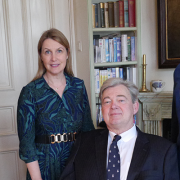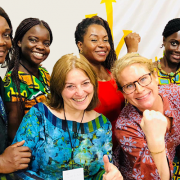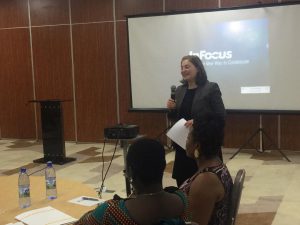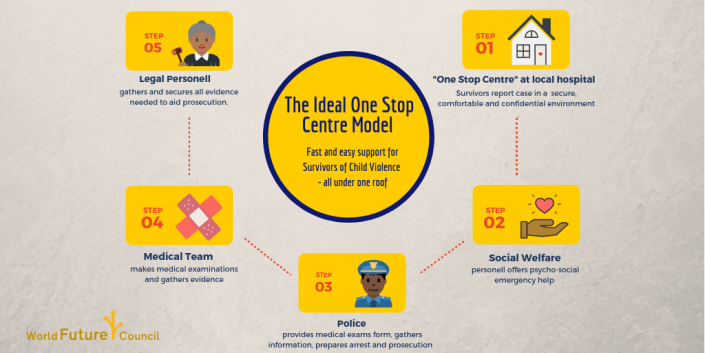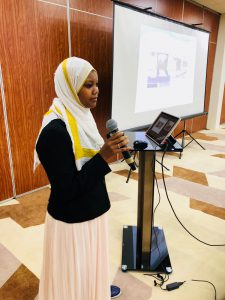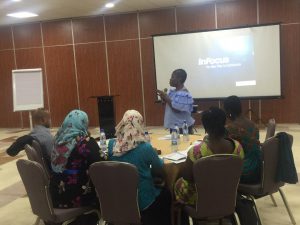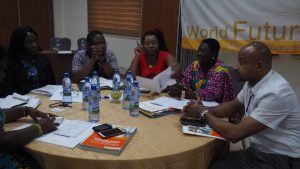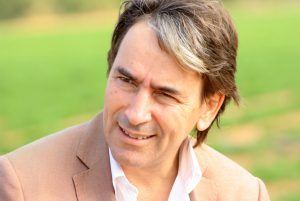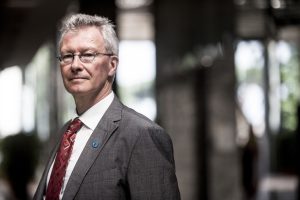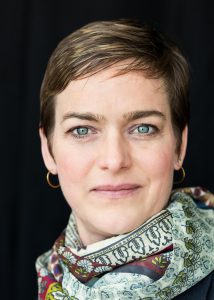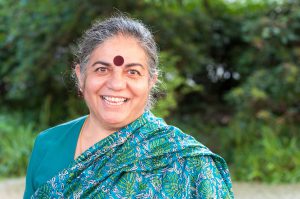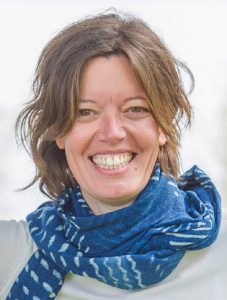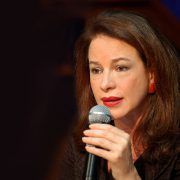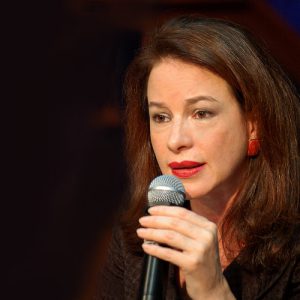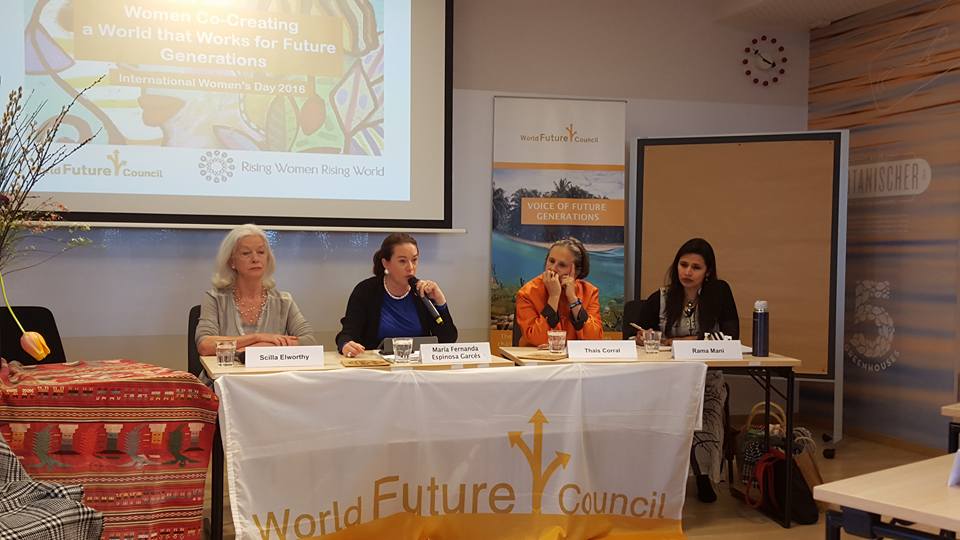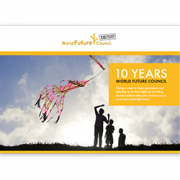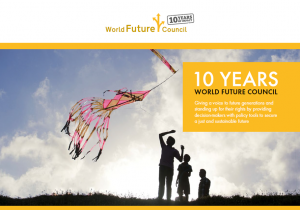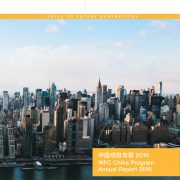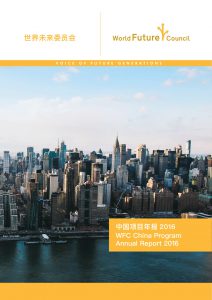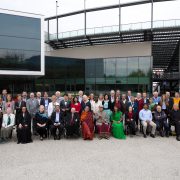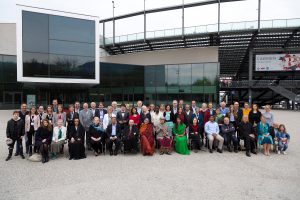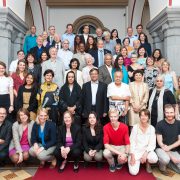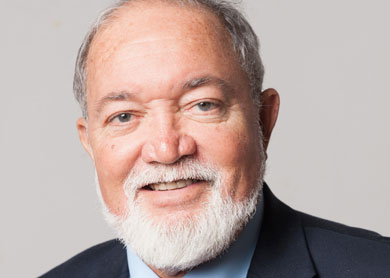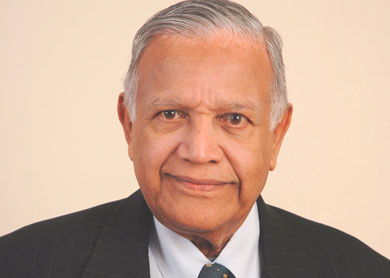Jakob von Uexkull resigns as Chair of the Management Board
Jakob von Uexkull, Founder of the World Future Council, resigns as Chair of the Management Board. Supervisory Board appoints successors.
Project topics for 2019 work will be climate protection, child and youth empowerment, agroecology and peace and disarmament.
Hamburg, 7th February 2019 – The Supervisory Board of the World Future Council Foundation announced the resignation of Jakob von Uexkull as Chair of the Management Board for health reasons. Von Uexkull founded the World Future Council in 2007 in Hamburg. As he resigns, the Vice Chair of the Management Board Alexandra Wandel (45) as well as Johanna Dillig (35), Head of Operations, were appointed Executive Members of the Management Board. Wandel now acts as spokesperson and Executive Director of the foundation, and Dillig as Director of Operations as well as Vice Chair of the Management Board.
The World Future Council (WFC) identifies and spreads the best and most sustainable policy solutions worldwide in order to pass on a healthy planet and just societies to our children. The new board announced that core topics of their work in 2019 will be climate protection and renewable energy, child and youth empowerment, agroecology as well as peace and disarmament. One of the highlights will be the Future Policy Award, which will focus on improving the lives of youth this year.
Alexandra Wandel states: “1.8 billion young people on our planet are confronted with numerous challenges: access to jobs and quality education, climate change, destruction of their environment and digitalisation. This is why the World Future Council will dedicate its Future Policy Award on youth empowerment, researching and awarding policies that create decent and sustainable jobs, and engaging youth for meaningful societal purposes.”
The new Management Board is supported by strong advocates, amongst them Honorary Councillor Prof. Dr. Michael Otto (entrepreneur, Germany) as well as the following Expert Commission Chairs from the Council: Dipal Barua (Founder and Chairman of the Bright Green Energy Foundation, Bangladesh) for Climate and Energy , Helmy Abouleish (CEO, Sekem, Egypt) and Vandana Shiva (Founder, Research Foundation for Science, Technology and Ecology India ) for Agroecology, Dr. Auma Obama (Founder and Director, Sauti Kuu Foundation, Kenya ) for the Rights of Children and Youth and Alyn Ware, Founder and Global Coordinator of the Network Parliamentarians for Nuclear Non-proliferation and Disarmament (PNND), New Zealand/Czech Republic ) for Peace and Disarmament. Abouleish, Barua, Shiva and Ware are also recipients of the Right Livelihood Award (also known as Alternative Nobel Prize).
Media Contact
Miriam Petersen
Media and Communications Manager
World Future Council
Dorotheenstr. 15, 22301 Hamburg, Germany
Email: miriam.petersen@worldfuturecouncil.org
Phone: +49 (0)1781018019
www.worldfuturecouncil.org
About the World Future Council
The World Future Council (WFC) consists of up to 50 eminent global changemakers from governments, parliaments, civil society, academia, the arts, and business who have already successfully created change. We work to pass on a healthy planet and fair societies to our children and grandchildren. To achieve this, we focus on identifying and spreading effective, future just policy solutions and promote their implementation worldwide. Jakob von Uexkull, the Founder of the Alternative Nobel Prize, launched the World Future Council in 2007. We are an independent, non-profit organization under German law and finance our activities from donations. For information visit www.worldfuturecouncil.org
